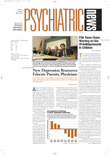It is well known that economic recessions and depressions are often accompanied by psychological difficulties and suicides. Stories of businessmen jumping out of windows following the stock-market crash of 1929 are legendary.
Little is known, however, about the kinds of people who commit suicide in the wake of an economic downturn or about the specific circumstances that prompt people to make such a tragic choice.
Now a study published in the January British Journal of Psychiatry offers some tentative answers to these questions.
The study was headed by Kathy Chan, M.D., an honorary associate professor at Kwai Chung Hospital in Hong Kong. Chan is also a research psychiatrist with training in ethnography.
From the mid-1980s to the mid-1990s, Hong Kong experienced a breathtaking economic “upper,” or as Alan Greenspan would say, “an era of irrational exuberance,” where properties increased 600 percent in value and the stock market soared over 400 percent.
In 1997, however, as Britain handed control of Hong Kong over to China, Hong Kong plunged into a severe, unexpected recession, accompanied by psychological repercussions. Between 1998 and 2000, more and more Hong Kong residents killed themselves, and many used a novel tool to achieve it—carbon-monoxide poisoning created by burning a charcoal grill in a small, sealed room.
Chan and her coworkers set out to learn more about these individuals, as well as the financial or psychological factors that might have prompted them to undertake such an act.
The researchers performed financial and psychological“ autopsies” on 160 Hong Kong residents who committed suicide by indoor charcoal burning between 1998 and 2000, as well as on 160 Hong Kong residents who had committed suicide during the same period but used other methods. Both cases and controls were matched on age and gender.
The persons who killed themselves by indoor charcoal burning tended to be less likely to have preexisting mental illness than persons who killed themselves by other methods. Further, financial indebtedness was significantly more common among persons who had committed suicide by indoor charcoal burning than it was among those who used other means.
Thus, those who killed themselves by indoor charcoal burning appeared to undertake such actions not because of preexisting mental illness, but because of financial debt.
Moreover, those who killed themselves by indoor charcoal burning tended to be middle-aged men who planned their suicides in advance, but often they did not attempt suicide until they were drinking alcohol.
Information gleaned from 25 survivors of indoor charcoal-burning suicide attempts also suggested that many, if not most, of such suicides had been driven by financial indebtedness. Said one survivor: “I had loans of 1 million Hong Kong dollars when I attempted to kill myself.”
Information culled from the 25 survivors likewise implied that the charcoal-burning suicide phenomenon may have been fueled by the public media in Hong Kong. For instance, indoor charcoal burning was quickly connected with indebtedness in newspaper reports. Newspapers carried pictures of the suicide scene, the paraphernalia, and the necessary arrangements. The reports conveyed the idea that indoor charcoal burning was an easy, painless, and effective means of ending one's life, especially in the face of insurmountable debts. Said one survivor, “I read about this method in the papers. I know it's easy. Jumping and wrist-cutting need more courage.”
On a more positive note, however, the researchers also found that persons who are in debt and who seek help to resolve their financial problems are no more at risk of suicide than is the general population. This information was conveyed to Psychiatric News by Paul Yip, Ph.D., one of the study authors and director of the University of Hong Kong's Center for Suicide Research and Prevention.
Although suicide by indoor charcoal burning may be a local phenomenon, Chan and her team believe that their findings might have implications for the United States, the United Kingdom, and other countries, where, as they pointed out in their study report, “overindebtedness is more serious than ever.”
The study was funded by the Hong Kong Health Care and Promotion Fund and the Hong Kong Jockey Club Charities Trust.
Br J Psychiatry 2004 186 67
